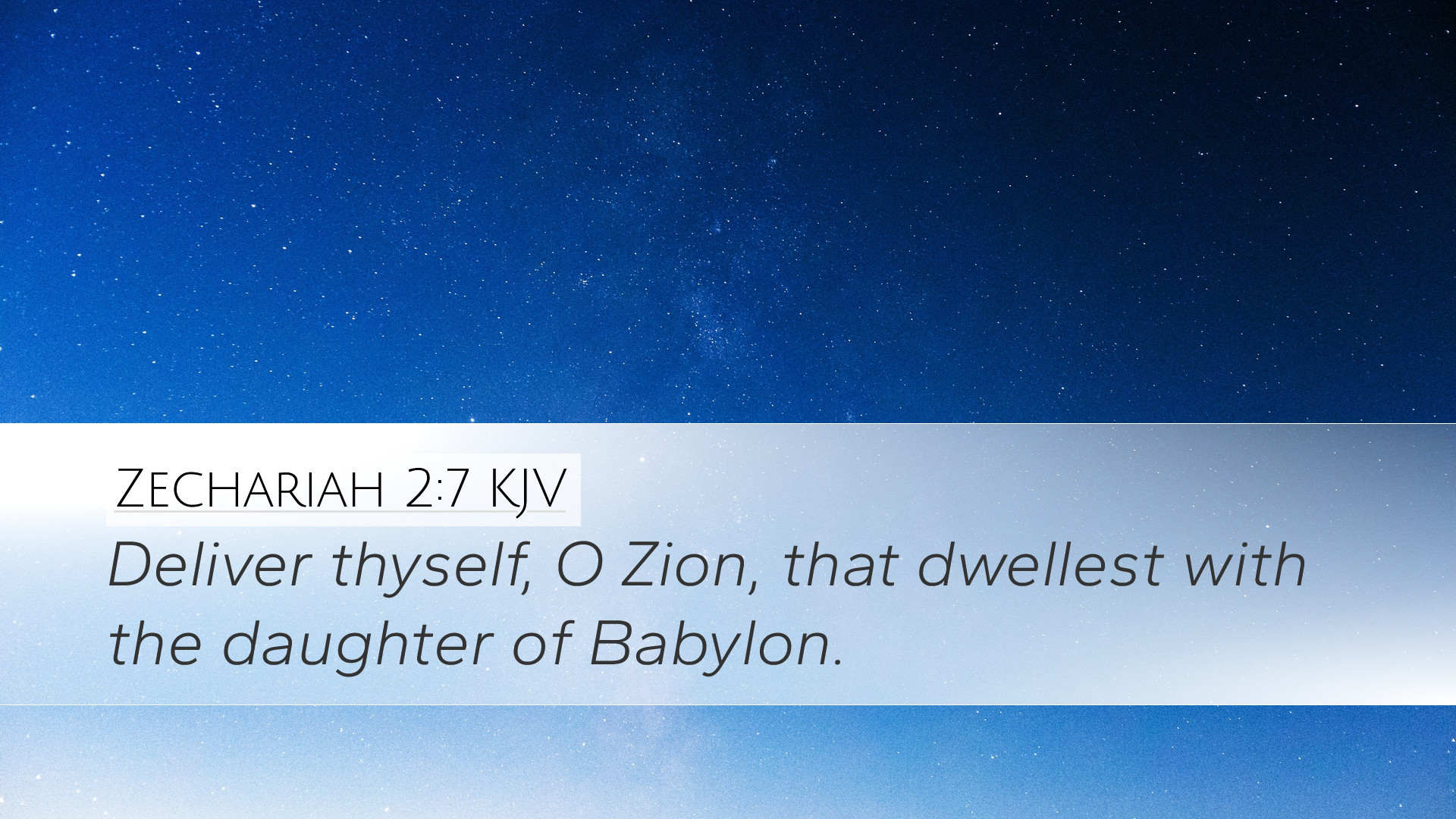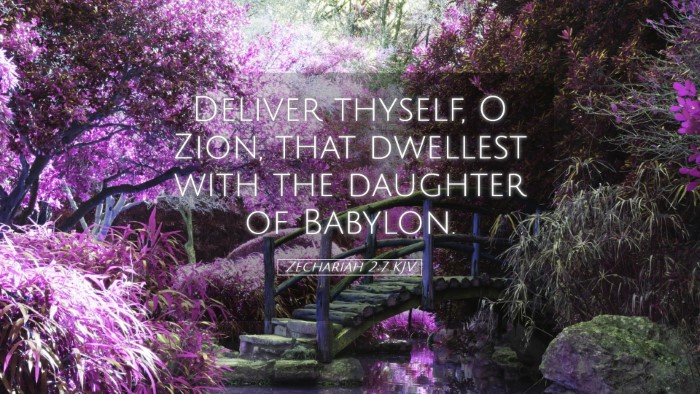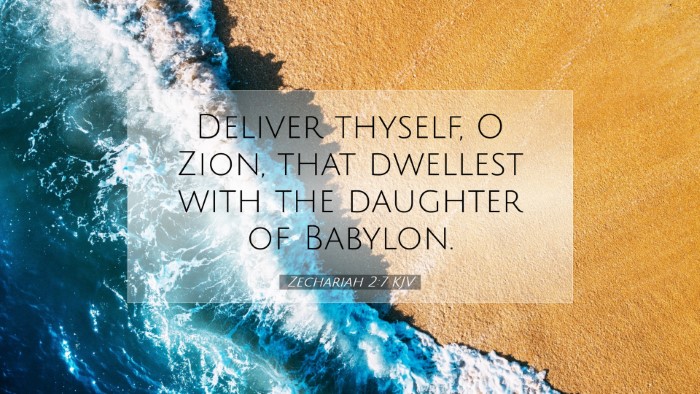Old Testament
Genesis Exodus Leviticus Numbers Deuteronomy Joshua Judges Ruth 1 Samuel 2 Samuel 1 Kings 2 Kings 1 Chronicles 2 Chronicles Ezra Nehemiah Esther Job Psalms Proverbs Ecclesiastes Song of Solomon Isaiah Jeremiah Lamentations Ezekiel Daniel Hosea Joel Amos Obadiah Jonah Micah Nahum Habakkuk Zephaniah Haggai Zechariah MalachiZechariah 2:7
Zechariah 2:7 KJV
Deliver thyself, O Zion, that dwellest with the daughter of Babylon.
Zechariah 2:7 Bible Commentary
Commentary on Zechariah 2:7
Verse (Zechariah 2:7): "Deliver yourself, O Zion, that dwellest with the daughter of Babylon."
Introduction
The verse in Zechariah 2:7 holds profound significance for the people of God, particularly in the context of their experiences in exile and the hope of restoration. Public domain commentaries shed light on various dimensions of this verse, including its historical context, spiritual implications, and eschatological relevance. This commentary seeks to combine insights from notable commentators such as Matthew Henry, Albert Barnes, and Adam Clarke to provide a comprehensive understanding.
Historical Context
Situated during a time of great upheaval for Israel, Zechariah’s prophecy emerged as a beacon of hope. The children of Israel had been taken captive by Babylon, experiencing the profound loss of their homeland. Matthew Henry emphasizes that this verse addresses the Jewish exiles, urging them to sever ties with Babylonian influences and return to their roots in Zion, which symbolizes not just a physical location, but the divine presence and favor of God.
Albert Barnes elaborates on the metaphorical “daughter of Babylon,” implying that the people of God must avoid the spiritual and moral decay associated with Babylon. This period requires a prophetic call to awareness and repentance.
Spiritual Implications
In urging Zion to “deliver yourself,” the text highlights personal responsibility in the process of redemption. Adam Clarke suggests that this implies an active engagement of faith; the call is to awaken from spiritual lethargy and return to the covenantal commitments that God established with His people.
Henry points out that the imperative to “deliver yourself” also reflects the sovereignty of God, who provides the means for liberation but expects His people to participate in their recovery. It underscores the need for self-examination, faith-based action, and a willingness to turn away from worldly entanglements.
The Modern Application for Believers
For contemporary believers, Zechariah 2:7 resonates with the call to prioritize spiritual identity over cultural conformity. Barnes notes that believers today face analogous challenges as they navigate through societal norms and values that may diverge from biblical truths. The call to “deliver yourself” serves as a reminder that the path to spiritual vitality requires intentional choices guided by faith.
Furthermore, Henry encourages a robust understanding of what it means to dwell in Zion — a personal relationship with God that brings peace, security, and purpose, as it differs distinctly from the instability of worldly systems such as Babylon.
Eschatological Significance
In the broader narrative of scripture, Zechariah 2:7 contains eschatological implications that speak to the ultimate deliverance and restoration of God’s people. Clarke affirms that this call is not limited to the historical return from Babylon but extends into prophetic visions pointing to the New Jerusalem, the ultimate Zion where God reigns eternal.
This future hope encourages believers to endure present trials, holding fast to the promises of God which foresee a time when His people will fully be liberated from sin and its consequences. Barnes illustrates that this dual interpretation showcases God’s faithfulness throughout history, reminding the faithful of His unchanging nature in covenantal fulfillment.
Conclusion
Zechariah 2:7 serves as a potent declaration—a call to restoration, personal commitment, and eschatological hope. The combined insights of Henry, Barnes, and Clarke bear witness to God's enduring promise to His people and the transformative power of responding to His call. For pastors, students, theologians, and Bible scholars, this verse invites deep contemplation on the richness of God’s word and its practical implications for living in accordance with His will.
- Reflection Points:
- What steps can we take to ensure our lives reflect our identity in Zion?
- How can we actively engage our faith when faced with cultural pressures?
- In what ways does this passage encourage hope in the context of spiritual restoration?


